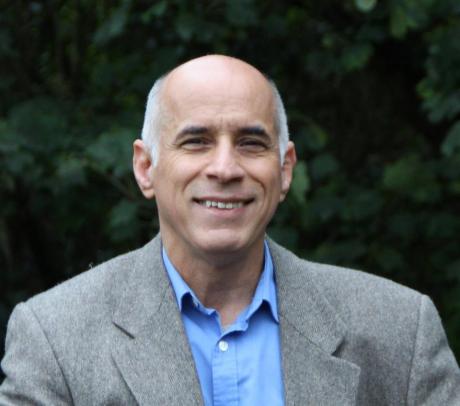
On June 7th, 2012, Reza Pahlavi gave an interview with the well-respected German weekly magazine, OnLine Focus.[1] A Persian translation was published soon after.[2] After this, his office published a statement in Persian which said that there were numerous mistakes in the interview, which it had asked Focus Online to correct.[3] I had, in this time, published a short critical comment about the article.[4] However, after reading the Pahlavi office’s statement, in order to be sure that the translation from German into Persian was correct, I sent both to an Iranian lawyer at the Max Plank Institute in Germany. He wrote back: ‘I read both, and the German-to-Persian translation is correct and exact.’ He then wrote, ‘with regard to Reza Pahlavi, the truth is that when I read the German text, I felt sick. My annoyance and anger at such a low and contemptible political act, which clearly reveals the backwardness of [Reza Pahlavi’s] mind, were so severe that I did not know what to do. I thought to leave a very critical comment (on Focus Online), but I realized that the interviewer knew what she was doing and, in fact, that using the best of methods she had revealed his empty, raw and childlike mind, which is at the same time is filled with meaningless arrogance.”
The cause of his anger was Reza Pahlavi’s declaration that he was the legal king of Iran, and that he can’t wait to sit on the throne. Also, in order to justify his father’s dictatorial rule, he argued that Iranians had not been ready for democracy and that, in effect, they did not deserve it. He suggested that his father had to train them, even saying that ‘some [former] revolutionaries are coming to me and saying that it would have been better if my father had arrested or executed them.’ He also praised the policy towards Iran of the despots of Saudi Arabi, Qatar and Bahrain, and placed himself importantly next to Gandhi and Nelson Mandela.
As far as I know, it was Mohammad Amini who wrote the first solid critique of this interview. After its publication he came under a barrage of criticism from monarchists who argued that the interviewer has misrepresented the views of Reza Pahlavi. They referred to a letter written by his office to Focus Online, which argues, ‘we need to mention that there are numerous mistakes in its translation from English into German and then into Persian, and that in this text the German-to-Persian translation is not compatible with the language of Reza Pahlavi. […] We request that Focus Online respects the media regulations and publishes the English version of the interview and corrects its German translation as soon as possible.’
Mohammad Amini contacted Focus Online to ask about their view of this statement. He was told that, first, they have not received any request from Reza Pahlavi’s office, and second, that the interview was recorded and that the record is at their disposal.
It is thus safe to assume that the sole purpose of the Pahlavi office’s statement is to deceive Iranians. Why? Because if the office really believed that the magazine did not accurately represent his views, they should have sent a statement to the magazine citing the parts which were misrepresented, rather than issuing a letter of protest in Persian without making the magazine aware. This is deeply unethical on two fronts. First, they have tried to deceive Iranians by making them believe that the letter was sent to the magazine. Second, they have accused the magazine of being dishonest, or at least, of lacking professional ethics, without giving it an opportunity to reply.
The mere fact that the Pahlavi office did not contact the magazine to register their concern suggests that Focus Online had actually conveyed what Reza Pahlavi had said. In fact, the interview was a brilliant piece of journalism by the skilful Andrea-Claudia Hoffmann, who knows the psychology of power-seeking people. As a result, Reza Pahlavi let his guard down and expressed his true self, which is always hidden behind the mask of someone who struggles for freedom and democracy. In other words, he was caught red-handed. He then panicked and, as damage limitation, issued a vague statement in Persian saying that his views were misrepresented.
After posting the Persian version of this post, Siamak Zand wrote, ‘as a journalist who worked at the Shah’s press office for the last seven years of his reign, resorting to such lies and deceit was the norm rather than an exception.’
In any case, if Reza Pahlavi believes my arguments are wrong, it will be easy to prove them so by releasing the interview recording or asking Focus Online to publish it. If you have nothing to hide, it is the most obvious way of clarifying a misunderstanding. I am waiting.
<> [1] See http://www.focus.de/politik/ausland/krise-in-der-arabischen-welt/cyrus-reza-pahlevi-im-focus-interview-ob-ich-die-krone-tragen-werde-haengt-vom-willen-des-volkes-ab_aid_764055.html
<>
<> [2] See http://www.irandarjahan.net/%D8%B3%DB%8C%D8%A7%D8%B3%D8%AA/%D8%A7%DB%8C%D9%86%DA%A9%D9%87-%D8%A2%DB%8C%D8%A7-%D9%85%D9%86-%D8%AA%D8%A7%D8%AC.html
<>
<> [3] See http://www.rezapahlavi.org/details_article.php?persian&article=605
<>
<> [4] See http://iranian.com/main/blog/mahmood-delkhasteh-11
<>
<> ” در این راستا لازم می دانیم این نکته را متذکر شویم که این مصاحبه با اشتباهات مختلفی از زبان انگلیسی به آلمانی وسپس به فارسی ترجمه شده است. بسیاری از مطالب درج شده در این متن به زبان آلمانی وهمچنین نسخه فارسی آن با ادبیات رضا پهلوی همخوانی ندارد.”






